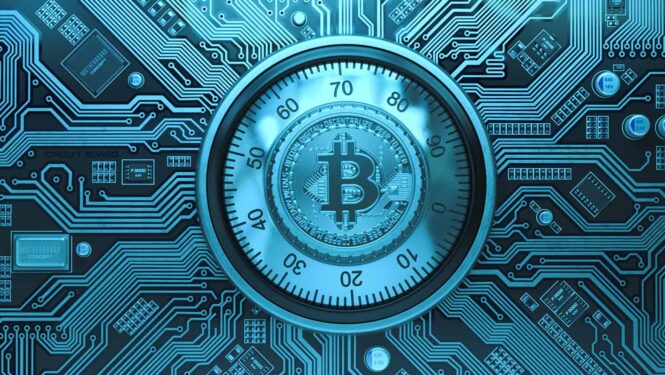Today, almost everyone is aware of Bitcoin and other cryptocurrencies. The primary reason behind their popularity is their high volatility. While most people have heard of Bitcoin, they have little understanding of how things work. Approximately 83 percent of people claim they are only slightly aware of cryptocurrency or have never heard of it.
Blockchain is the technology that supports Bitcoin and other alternative currencies. Although many people mistakenly believe that blockchain and cryptocurrencies are the same things, the reality is that blockchain is the technology driving cryptocurrencies. If you are also looking forward to trading in cryptocurrencies, visit this site.
By improving productivity and making the mortgage process more inexpensive, blockchain technology can help simplify the mortgage market. To stay updated with the latest crypto news, click here.
What Exactly Is Blockchain Technology?

Blockchain technology is best described as a federated, digital, distributed network or data system. This technology is made up of three parts:
- The record
- The block
- The chain
Any transfer, from someone buying something from someone, say, a piece of property, can be recorded. The record includes all of the transaction’s info, such as the original cost, who was engaged in the transaction, and what they purchased. It also contains the digital signatures of all parties involved.
Before a log can be added to the blockchain, it must be verified as a legal transaction. Generally, the transaction is verified by nodes or a network of computers. Each server examines the record’s information to make sure that all the events happened exactly how they are portrayed.
A validated record, along with many others, is stored in a block. Each completed block is assigned a unique script known as a hash. The hash of the block preceding it in the chain is also added to the block. The newly built block is added to the chain, where it is linked to the previous block by the shared hash.
When some other block — or set of validated, finished records — is ready to enter the chain, it’ll be given a unique hash. If you are looking forward to starting trading in bitcoins, check this site.
How Does Blockchain Feature?

At this point, blockchain may sound a lot like any other type of record-keeping system. When you buy something from a shop, for instance, the transaction details are verified before the sale is done. Before approving a credit card payment, the card company or bank must confirm that you have the authority to use the card and that you have sufficient money to borrow the sum of the payment.
Decentralization is the main feature that differentiates blockchain from the other kinds of ledgers or datasets. The majority of other database systems and ledgers revolve around a centralized place, such as a bank or credit union. The bank serves as the primary node and is in charge of accepting and confirming every record or transaction.
There is no main server in the blockchain. Every device or node in the public blockchain has a replica of the blockchain ledger and can add to it. Each node must add the purchase to their copy of the ledger whenever the ledger is changed — for example, if anyone adds a piece of data.
What Are the Perks of Blockchain In The Mortgage Industry?

This technology has many perks, whether it is used for cryptos or in the mortgage industry. The following are some of the most major benefits of this technology.
1. Lower Cost
This technology is generally cheaper as compared to other traditional ways. In the condition of mortgages, many parties are involved while the manual methods are being executed. Since there are so many people involved, everybody must be provided with a piece of the mortgage or must be paid in some sense. This technology eliminates the need for third parties or middlemen, and it also eliminates the additional costs involved.
One other way blockchain systems can help cut costs is by resolving the threat of fraud, that is, the risk of someone breaking into your digital wallet and stealing money from it is reduced.
It requires a good amount of computing ability to change a block in the blockchain, making it more difficult to copy a transaction. There are fewer fake transactions now that the double-spend problem has been solved.
Finally, blockchain aids in cost reduction by cutting the levels of the necessary documentation needed during a money transfer. Those engaged in a mortgage or sale will not have to sift through piles of paperwork because all of the needed data will be in the block record, and everyone engaged will have access to the same file.
2. Enhanced Transparency

The charm of blockchain is that it is fully transparent, and people can view all the blockchain transaction records and sales records. Rather than setting up a separate copy of everything that happened in a particular transaction, everyone involved has access to the same data. If anybody wishes to make a change to a transaction or ledger, they must notify everyone else involved, and others must agree to the change.
3. Enhanced Speed
Blockchain technology is viewed as a slow-moving method, however, the reverse is actually true. Although every copy of the ledger must be revised when there is a change, the process is fast, usually taking only a few seconds.
Traditional processes, on the other hand, that focus solely on a lot of hard-copy records and return between multiple parties, can take days, if not weeks. Moreover, traditional methods can be prone to mistakes. A mono typo or misprint in one file, for example, can change the terms of a mortgage and also defer the loan process.
Conclusion
Although blockchain is much more secure than previous systems of information sharing in many ways. However, it is not unbreakable. Shrewd hackers still can break into a device and gain access to sensitive information, banking data, or people’s assets. A blockchain’s size and many various parties who have full rights to it can make it incredibly vulnerable.
Another possible legal concern with blockchain is that it requires everybody involved in the mortgage industry to be on board for it to work effectively and streamline the process. A buyer and seller cannot decide to use blockchain without consulting the lender.
 Imagup General Magazine 2024
Imagup General Magazine 2024



